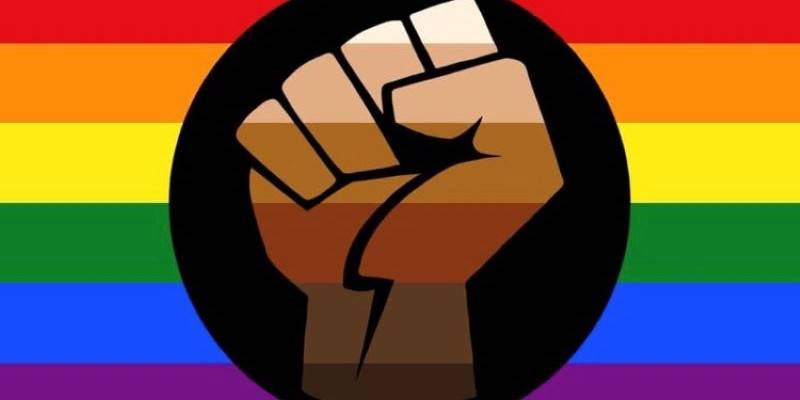They will also “continue to disallow uniformed police officers to march in our Pride Parade, and we will have conversations with the City of Champaign and the Champaign Police Department regarding alternatives to using squad cars for road closures, traffic blocks, and parade marshaling.”
Here is their full statement:
As protests in solidarity with George Floyd, Breonna Taylor, Tony McDade, and so many other Black lives cut short by police violence spread across the country, it is essential that we look at the ways that police brutality, racism, and mass incarceration affect our community here in Champaign County. LGBTQ+ organizations in particular have a responsibility to all those who take to the streets to fight for justice.
As we re-examine what pride means over 50 years after the Stonewall Riots, we know that it is no longer enough to celebrate this month business-as-usual. We take into consideration the case of Aleyah Lewis, a Black woman who was beaten and arrested by Urbana Police Department officers responding to an unrelated 911 call.
We take into consideration the 27 protesters on Sunday, May 31st who were met by police in riot gear who escalated the situation in a blatant show of unnecessary force. We take into consideration the consistent dismissal in C-U of citizen complaints and calls for investigations into incidents of police brutality.
We take into consideration all those who were killed at the hands of police in Champaign County, including Kiwane Carrington, for whom Justice was never served.
We take into consideration the intersections of race, gender, and sexuality, and the
myriad struggles that exist between them.
We take into consideration our own mission: that every person in Champaign County
who identifies as a gender or sexual minority can live full, healthy, and vibrant lives.
With all this in our hearts, we follow in the footsteps of Chicago’s Dyke March, Indy
Pride’s annual pride festival, and many more around the county in deciding that we will no longer allow law enforcement agencies as entrants in the Pride Parade, we will continue to disallow uniformed police officers to march in our Pride Parade, and we will have conversations with the City of Champaign and the Champaign Police Department regarding alternatives to using squad cars for road closures, traffic blocks, and parade marshaling. If a police officer would like to attend an event, they may do so plain-clothed, as part of the LGBTQ+ community or as an ally.
As we demand long-overdue change from others, we must also change ourselves. At Uniting Pride, we acknowledge that there has been a history of Black and brown voices being silenced in the LGBTQ+ community. The offense of this discriminatory history is magnified when we acknowledge that, in the United States, the Stonewall uprising was a turning point in the LGBTQ+ movement led by Black and brown trans women.
We will hold ourselves to the commitments we have made, and we will do what we can as an organization that fights for change and equality, to hold local police, governments, and decision-makers to the commitments that we demand of them. We invite all members of the communities that we serve to help us hold local government, and ourselves, accountable.
Internal Accountability
Steps we will take to work toward a racially just and anti-racist movement include:
- Openly supporting the work of groups working against racism and/or on behalf of youth and communities of color (e.g., signing on to petitions, attending events, co-sponsoring events).
- Ensuring that we advertise our events and meetings in ways likely to reach LGBTQ+ people of color.
- Collaborating with organizations and groups that employ and work with people of color
- Ensuring that our meeting spaces are accessible and welcoming to people of color.
- Including people of color in all aspects of our work.
- Actively valuing multiple perspectives in our discussions and decision-making.
- Educating ourselves and our colleagues about oppression and privilege in a systemic way through staff development and ongoing conversations.
- Reviewing our organizations’ mission and vision statements and goals to determine if there are ways that our organizations can more directly address racism.
- Seeking input from groups focused on serving communities of color on strategy development
Statement of Anti-racist Framework
The board and staff at Uniting Pride choose to adopt an anti-racist framework by:
- Acknowledging the ways racism, oppression, and privilege perpetuate homophobia and transphobia;
- Ensuring that the strategies, actions, and policies that we support and employ do not undermine efforts to combat racism;
- Organizing a movement that is mindful of how the issues of racism affect safety for all of the LGBTQ+ community;
- Developing and implementing anti-racist strategies that are specific to the including, without limitation: practicing and modeling respectful behavior, employing anti-racist language and group dynamics, examining every situation to understand how the dynamics of racism and white privilege work in that situation;
- Challenging all aspects of white privilege—individual, cultural, political, and organizational, and;
- Engaging in ongoing self-assessment and recognizing that doing work with an anti-racist lens is an ongoing process.
What We Ask Of You
Demand justice for Aleyah Lewis and meaningful accountability through Urbana’s Citizen Police Review Board.
Donate to the Champaign County Bailout Coalition so they can continue to free those held unjustly in high COVID risk facilities.
Contact our State’s Attorney to demand that the 27 protestors arrested on May 31st have all charges dropped.
Stay in the fight with us beyond this week and this month. Honor our Black and brown, queer and trans ancestors who took to the streets and fought for their freedom by fighting to ensure that our LGBTQ+ movement leaves nobody behind.
Image from Uniting Pride.








